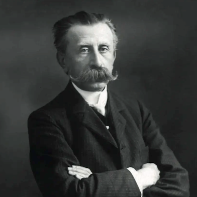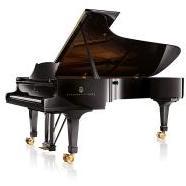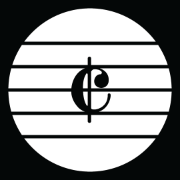Leaderboard
Popular Content
Showing content with the highest reputation on 05/20/2023 in all areas
-
A bit of new “Harmoniemusik” (music for wind band) from me today, just completed: “Seven Variations on a Theme of Daniel Steibelt.” No doubt you have probably never heard of Daniel Steibelt (1765-1823), and that’s a pity, because he was one of the best pianists and composers of his day. His main claim to fame nowadays is that he was unwise enough to challenge Beethoven to a piano playing duel, and he lost: Steibelt played first, then Beethoven, when it was his turn, took a piece of Steibelt’s music, turned it upside down, and improvised on it brilliantly and at length; Steibelt stormed out of the room and left Vienna, never to return. The tune of Steibelt’s I’ve chosen for this piece is from the last movement of his Piano Sonata in C minor, Opus 6, No. 2, and I hope you’ll find it as delightful to hear treated this way as I did working with it. Seven Variations on a Theme of Daniel Steibelt (2023) - Composed: May 14-18, 2023 at Austin. - Scoring: 2 Oboes, 2 Clarinets in B-flat, 2 Horns in C, 2 Bassoons. - Style: Classical, ca. 1790-1800. - Duration: 8:10. - Electronic Rendering by Finale 27 music notation software’s "Human Playback" with NotePerformer 4 artificial intelligence assisted interpretation.1 point
-
For me it is simple. I'm a student of music composition, and everything I do is with that understanding. I'm learning. Sometimes its good. Sometimes not. Were I ever to get to a public performance level, I would hope my approach has an audience, but I simply can't pander or be someone I'm not. For me, much of music stops around, say, 1945. I occassionally come across a modern/post modernist piece that appeals to me, don't get me wrong, but most of it I find derivitive, vapid, and, worst of all, UGLY. Life is too short to spend time on that, and we can get ugly anywhere in this world. I don't at all get the idea that we've somehow exhausted music in the common practice period/romantic style, and that we must move on. It seems patently false. My appreciation of the 1st generation Hollywoood film composers and John Willliams is founded on this continung to explore the ENDLESS possibilites. As others have spoken about here, if the music rings emotionaly true and effective, what can be more relevant? Maybe it's best to keep the nose to the grind stone, follow our inclinations while stiving to be better, and maybe the world will get our drift some time or another. Or not. I think most here are like me. We compose/create because we must. Its what we are. And there is/should be great satisfaction in being true to our nature.1 point
-
Hello Jörfi, Sorry for the delay of my response. The last month was a complicated time for me. I am really glad that you liked the piece. Thanks for your kind answer. Thank you Peter for your review, and also, I apologize for my late reply. The harmonics are maybe somewhat exaggerated, but that was just me, being a bit in an excited mood. Of course, the ending could have been written in many different ways, but I did not want to make an extension with new themes. I rather wanted to keep it short (perhaps the piece is useful as an “encore”) Thank you for your comments, Quinn Hello PCC, I agree with you about bar 39. It looks like an error which I overlooked. The top notes of the first and second dotted quarter chords should be quavers as well. I will change it. The piece should be played very fast (like most tarantella´s.) I indicated “prestissimo” at the beginning The sound file was set at a b.p.m. of 147 for a dotted quarter note. Thanks a lot for your comments!1 point
-
I can see this from both sides - principally because I used to be entirely and firmly rooted in @J. Lee Graham's camp (you might remember reviewing some of my Classical and Romantic period type pieces - Symphony in E-flat minor etc?). Now though, I write mainly contemporary music which the academics would call more 'relevant'. I've been thinking quite heavily over the past few months about what music means in the modern day, as I prepare to go to uni to study music. I've sort of come up with a sort of personal philosophy - namely that the way classical music is presented is too stuffy etc etc. But to try to stick to the question at hand, I really don't think I have much more to say than music is relevant if it serves a purpose. You, the composer, decide that purpose. It could be just for your own sake - @Henry Ng Tsz Kiu's "obligation to write". It could be that you're composing for people to play and to take enjoyment from playing - what @J. Lee Graham has said just above me. Or it could be a political/social/whatever commentary, as is the state of much academic "new" music composed today. I personally believe that the only real purpose of music is to inspire emotion, to provide an outlet for emotion, to invoke emotions in your audience. And is that not as relevant today as 400 years ago, albeit with a wildly different sound palette?1 point
-
I may have the tenor have the suspension to have C-A-Bb in the rhythm of quaver-quaver-crotchet. Some strict theorist maintain that the suspension cannot cancel the parallel effect but I think it's OK here. For me you don't have to afraid of the absence of 3rd there if there's a suspension that will be resolved to a 3rd of the chord. Henry1 point
-
I particularly like the latter part of the music, from 1:26 to 2:08 since you know how to create tension and drama by modulation and regulating the harmonic rhythm! Henry1 point
-
Hi @Quinn St. Mark, Welcome to the forum! Carl gives a great review on your piece. I think the transition is fine for me, and just suffer from the computer rendition, since you are having the LH featured there but not reflected in the rendition with the volume of RH louder there. Probably you can try to play it yourself for more authentic interpretation! I don't think it's bland there, as you are having the cadence there and the octaves are fine with the RH busying. This etude can be real difficult to play though with all these slurs. But you successfully create tension and drama even though the pattern is repetitive since it's an etude. Great job on this. Like Carl said your modulation is smooth. Thanks for joining us! Hope to see you more here, both by having new posts and reviewing other works! Henry1 point
-
Hi @Quinn St. Mark, This passage is not as bad, but it can be improved further. For example, maybe you can add more voices to the harmony or some rhythmic interest to the accompaniment instead of just alternating octaves in the left-hand part. Glad to hear that! Carl Koh Wei Hao1 point
-
G'day @Carl Koh Wei Hao, Thank you so much! Although admittedly I haven't formally studied music theory since 7th grade aside from my violin lessons and time spend in a small community orchestra, I have often found binge listening to be a key asset for inspiration. But this really means a lot, so thanks again! Thank you for your feedback on the transition to the main theme as well. If I recall correctly, this was actually the last part of the piece that I wrote; my intent was simply to bridge the gap between the first half and the coda, and I suppose the number of bars wasn't really at the forefront for me at the time. But I'll definitely take your advice, and I'm sure I already know which section of the passage to retain! One personal qualm I had with the piece was whether or not the left hand part from 1:53 to 2:06 is a bit bland, too. Thanks heaps for commenting, and yes I definitely hope to become more involved with this community in the future! Take care, Quinn St. Mark1 point
-
Ah, relevance. Here's a question for you: why is it even important to be "relevant" as a composer? I've never understood this. It certainly doesn't matter to me, though it does to a great many others who worry about it unduly. I for one want nothing about this crazy modern world to have even the slightest influence on my art. I'm very happy indeed being relevant to an earlier time and place, namely 18th Century Europe. In the last few years, I have had a two motets, an anthem (admittedly in a more modern style), three chamber works, a Sinfonia Concertante, and a symphony of mine premiered by professional and competent amateur ensembles - the Sinfonia Concertante was even performed by an historically informed performance (HIP) ensemble on period instruments - and those are just the performances I know of (thank you IMSLP). The fact that my music isn't in the slightest "relevant" to our times doesn't seem to be hurting me any. Why should I worry about relevance? I'd rather beautify the world in my own way. I'm so fortunate that attitudes toward historicist composers are changing rapidly for the better. I fought long and hard to get where I am. It was as if I knew someday there would be a turnaround of values. If some of y'all want to spend your creative time beating the dead horse of "relevance," racking your brains trying to achieve that goal instead of just concentrating on making beautiful music, go ahead, I won't stop you. But I submit that your time and energy could be better spent just expressing yourself as best you can. Whatever you do, I wish you the best of luck.1 point






